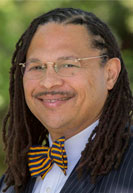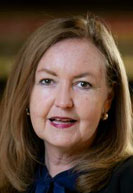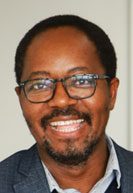Subscriber Benefit
As a subscriber you can listen to articles at work, in the car, or while you work out. Subscribe NowCape Town, South Africa, sitting at the southern edge of the world’s largest continent, boasts beaches and mountains much different than the industrial buildings and busy parks of South Bend, Indiana.
But the two now share a bond.
The University of Notre Dame Law School and the University of Cape Town have solidified a new partnership that will allow faculty and students to collaborate on legal topics of interest to their respective countries and to travel to each other’s schools, furthering the educational experience. One key focus will be human rights.

Several members of a delegation at the Notre Dame Law School traveled to Cape Town in April to sign an official Memorandum of Understanding agreement alongside the University of Cape Town Faculty of Law.
“Part of what we’re trying to do at Notre Dame, not just for the law school, but for the whole university, is we want to extend the reach of the university, around the world, but especially in the Global South, where we feel that we can have an impact for good, and to reach people who are underserved,” said Notre Dame Law School Dean G. Marcus Cole.
For Cole and others at Notre Dame, the University of Cape Town stood out as the preeminent research university in South Africa.
“I just think it’s a really great collaboration for both of us, just to see what law schools are doing in other parts of the world and how they’re educating their students,” said Christine Venter, Director of the Legal Writing Program at Notre Dame Law School and a member of the Law School delegation that established the partnership.

The memorandum signing marked the Notre Dame group’s second visit to Cape Town: last November, the team traveled to South Africa to meet with members of the university in hopes of establishing this partnership.
That trip fell on the 50th anniversary of Notre Dame forming its own international program for human rights advocacy, now known as the LL.M. Program in International Human Rights Law, a collaboration between the law school and the Klau Institute for Civil and Human Rights.
In the 1980s, prominent South African jurist Justice Richard Goldstone met with then-Notre Dame President Rev. Theodore Hesburgh to discuss ways to fight apartheid, according to Notre Dame. What came of the discussion is the LL.M. Program.
Though still in its infancy, the five-year partnership has already led to a human rights-related conference that took place in Cape Town the same week the memorandum was signed.
That conference, “Business Humans Rights Conference: Business and Human Rights in Africa,” was the first joint research between the schools.
Notre Dame’s international partnerships are structured along three dimensions, Cole said. The first dimension, joint conferences, allows faculty to work together face-to-face and comment on each other’s work.
The second dimension, faculty research collaborations, happen as a result of those collaborative conferences.
The third dimension looks at student exchange programs, where students at the schools can study at either campus.

This partnership in particular places a high emphasis on faculty, according to professor Danwood Mzikenge Chirwa, dean of law at the University of Cape Town. Though the school has done partnerships in the past, Chirwa anticipates the collaboration with Notre Dame will be highly beneficial.
“We treat this as an incredibly exceptional partnership that is bound to work well for both of us and the students,” he said.
As for the students, leaders at both schools hope to get the study abroad program off the ground soon, as early as fall 2025.
“What we’re working on now is looking at courses that can be taught to students from either campus, where we’re bringing students from either Indiana to South Africa or from South Africa to Indiana,” Cole said. “So that students are sitting in a classroom, learning from each other and learning an instruction that is uniquely designed to address issues that are common to South Africa and to the United States.”
Both the United States and South Africa have unique histories in fighting for civil rights, Cole said. He believes the partnership will help students and faculty at both universities grow in their understanding of these rights from fresh perspectives.
“American students can learn from South Africa, from their unique experience with regards to civil rights, and we think that South African students can learn from the American experience with civil rights.”
As the partnership progresses, the schools could expand into other areas of interest, like private and commercial law.
At the heart of the partnership, however, is the opportunity to build camaraderie between two schools that, though they sit on opposite sides of the world, face similar challenges and approach them in ways that can be learned from. Leaders at both schools anticipate the partnership will be incredibly beneficial to those involved.
“It just expands the possibilities for students’ networks. But also, students will tap into the capacity that we have at the different universities,” Chirwa said. “So, it really expands the possibilities for students’ experience and knowledge.”
“The practice of law has become increasingly global,” Venter said. “And so, giving our students experiences in different parts of the world, I think it’s really important if we’re training them fully to participate in the legal community.”•
Please enable JavaScript to view this content.

